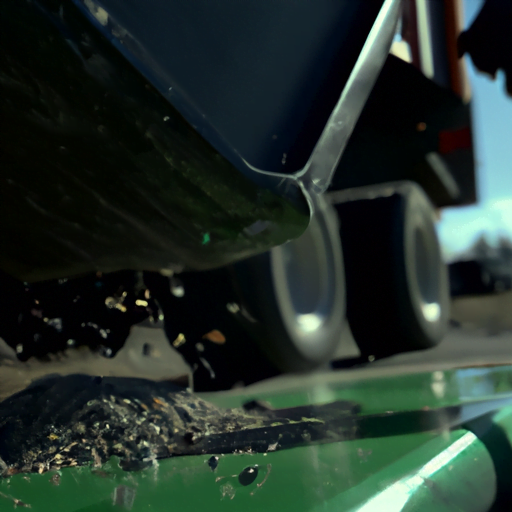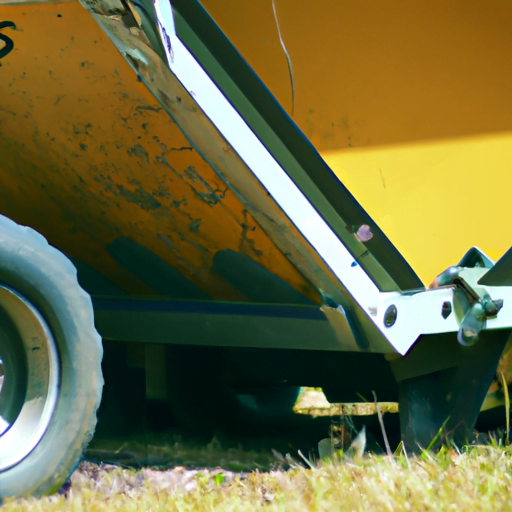-
Table of Contents
The Most Common Problems with Dump Trailers and How to Fix Them
Whether you’re a contractor, landscaper, or just a DIY enthusiast, dump trailers can be an invaluable tool for hauling and dumping heavy loads. However, like any piece of equipment, they can also experience their fair share of problems. In this article, we’ll explore some of the most common issues that dump trailer owners face and provide practical solutions to get your trailer back in working order. So, let’s dive in and learn how to tackle these challenges head-on!
1. Hydraulic System Issues
One of the most common problems with dump trailers is related to their hydraulic systems. These systems are responsible for raising and lowering the trailer bed, and when they malfunction, it can be a major headache. Here are some common hydraulic system issues and how to fix them:
- Leaking hydraulic fluid: Inspect the hydraulic lines, fittings, and seals for any signs of leakage. If you find a leak, replace the damaged component and refill the hydraulic fluid to the appropriate level.
- Slow or weak lifting: This could be due to low hydraulic fluid levels, air in the system, or a worn-out hydraulic pump. Check the fluid level and top it off if necessary. If the problem persists, bleed the system to remove any trapped air, and consider replacing the pump if it’s showing signs of wear.
- Trailer won’t lift at all: This could be caused by a dead battery, a blown fuse, or a faulty hydraulic pump. Check the battery and fuses first, and if they’re in good condition, test the pump to see if it’s functioning properly. If not, it may be time for a replacement.
2. Electrical Problems
Electrical issues can also plague dump trailers, causing problems with lighting, brakes, and other essential functions. Here are some common electrical problems and their solutions:
- Non-functioning lights: Check the wiring connections between the trailer and the tow vehicle, as well as the bulbs and fuses. Replace any damaged or corroded components, and ensure that the ground connection is secure.
- Intermittent or weak brakes: Inspect the brake wiring for any signs of damage or corrosion, and check the brake magnets for wear. Replace any worn or damaged parts, and ensure that the brake controller is properly adjusted.
- Dead battery: If your trailer has a battery for powering accessories or the hydraulic system, make sure it’s properly charged and maintained. If the battery is old or damaged, consider replacing it with a new one.
3. Structural and Mechanical Issues
Over time, dump trailers can experience wear and tear that leads to structural and mechanical problems. Here are some common issues and how to address them:
- Cracked or damaged frame: Inspect the trailer frame regularly for signs of stress, cracks, or other damage. If you find any issues, consult with a professional welder or trailer repair shop to determine the best course of action for repairs.
- Worn or damaged tires: Check the tire pressure regularly and ensure that it’s within the recommended range. Inspect the tires for signs of wear, such as uneven tread or sidewall damage, and replace them as needed.
- Loose or damaged suspension components: Inspect the trailer’s suspension system for any signs of wear or damage, such as loose bolts, worn bushings, or bent components. Tighten or replace any problematic parts to ensure a smooth and safe ride.
4. Improper Loading and Unloading
Improper loading and unloading of your dump trailer can lead to a variety of problems, including tipping, uneven weight distribution, and damage to the trailer bed. To avoid these issues, follow these best practices:
- Load evenly: Distribute the weight of your load evenly across the trailer bed to prevent tipping and uneven stress on the frame and suspension.
- Don’t overload: Be mindful of your trailer’s weight capacity and avoid exceeding it. Overloading can lead to structural damage, poor handling, and increased risk of accidents.
- Unload on level ground: When dumping your load, ensure that the trailer is on level ground to prevent tipping or uneven stress on the hydraulic system.
Conclusion
In conclusion, dump trailers are incredibly useful tools, but they can also experience a variety of problems. By being proactive in maintaining your trailer and addressing issues as they arise, you can keep your dump trailer in top working condition for years to come. Remember to regularly inspect your hydraulic system, electrical components, tires, and suspension, and always practice proper loading and unloading techniques. With a little care and attention, you can avoid many common dump trailer problems and enjoy a safe, efficient, and reliable hauling experience.


